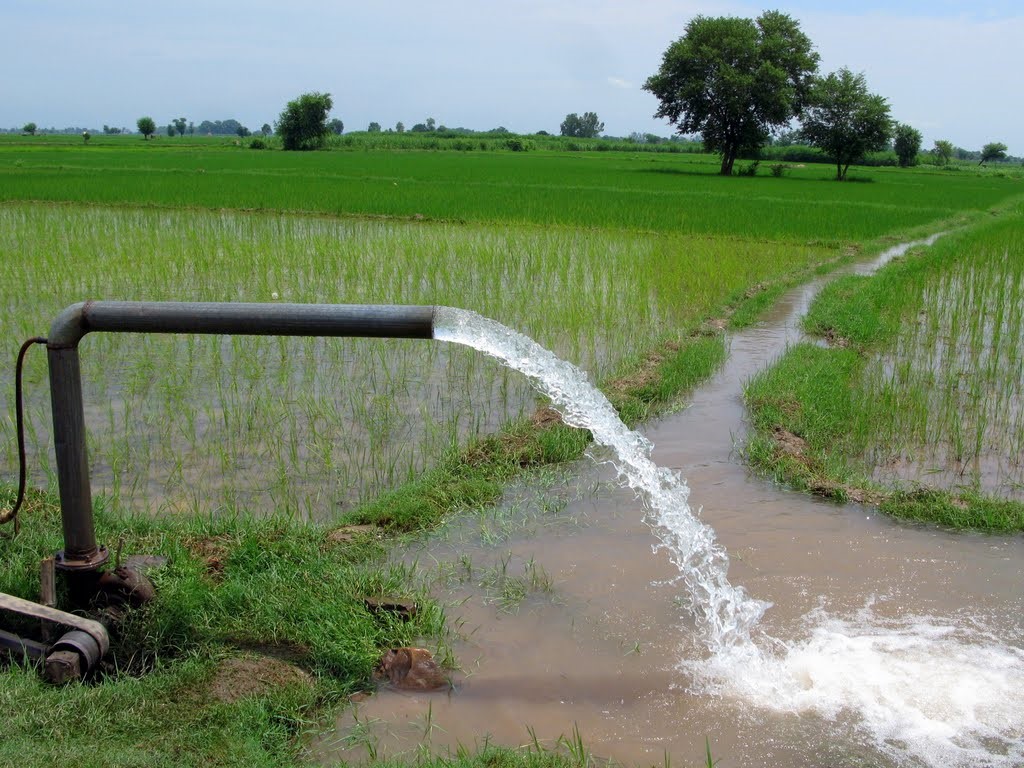Energy input and carbon footprint to supply water for major crops in Pakistan | Abdul Wahab Siyal

Field | Discipline
Expertise
Summary
For increasing populations, decreasing agricultural land, expanding stress on water and energy resources, and climate unpredictability, south Asia faces the challenges about how to produce more food with the same or less land and water, and increased energy prices, while preserving resources and maintaining environmental sustainability. Water and energy are the two major issues currently faced by irrigated agriculture in Pakistan.
The proposed research is based on two hypotheses: (i) Although Pakistan is facing water and energy crises, mismanagement of water and energy are the major issues instead of water and energy availability; (ii) Advanced water management techniques linked with renewable energy technologies are a potentially viable solution for current and future challenges related to water and energy for irrigated agriculture in Pakistan and in South Asia.
The aim of the research is to verify these hypotheses by answering the following five research questions:
(i) What is the current situation of water and energy for irrigation of major crops in Pakistan?
(ii) What are the future projections of water and energy for irrigation in agriculture of Pakistan?
(iii) What are the effective water management techniques available?
(iv) What role renewable energy options can play for green solution?
(v) What are the major policy gaps in water–energy–food nexus?
This research seeks to explore the water-energy nexus for agriculture in Pakistan, focusing on the major crops at the district level, and to quantify the potential changes in energy and GHG emissions associated with agricultural water for crop production. This link between energy, irrigation water and agriculture needs to be investigated with improved data collection and policy action.
The key research question is:
“What are the dynamics of “water” and “energy for water” and how their management at farm level as well as policy framework can address the decreasing availability of water and increasing demand of “energy for water” in irrigated agriculture of Pakistan?”
The goal of the research study is to understand and assess water-energy nexus in irrigated agriculture of Pakistan for effective resources management and planning for sustainable agriculture in the country. The overall objective of the research is to find out linkages and its implications for energy input and supply water for major crops of Pakistan to develop effective water and energy management strategies for the whole area of South Asia. The nexus approach can enhance understanding of the interconnectedness of the sectors and strengthen coordination among them. But it requires a major shift in the decision-making process towards taking a holistic view and developing institutional mechanisms to coordinate the actions of diverse actors and strengthen complementarities and synergies among the three sectors. This can be done on scientific robust knowledge generation which provide base for policy makers to develop frame work for cross-sectoral coordination and managing the nexus challenges at local as well as regional level.

Supervision by
-
Promotor: Prof. M.A. (Rien) Herber | Geo-energy | ESRIG, University of Groningen.
-
Promotor: Dr. ir S. (Sanderine) Nonhebel | Integrated Research on Energy, Environment and Society - IREES | ESRIG, University of Groningen.
-
Co-promotor: Dr. P.W. (Winnie) Leenes | Integrated Research on Energy, Environment and Society - IREES | ESRIG, University of Groningen.
More information and contact details can be found on the personal profile of Wahab Siyal
| Last modified: | 27 February 2024 10.58 a.m. |
